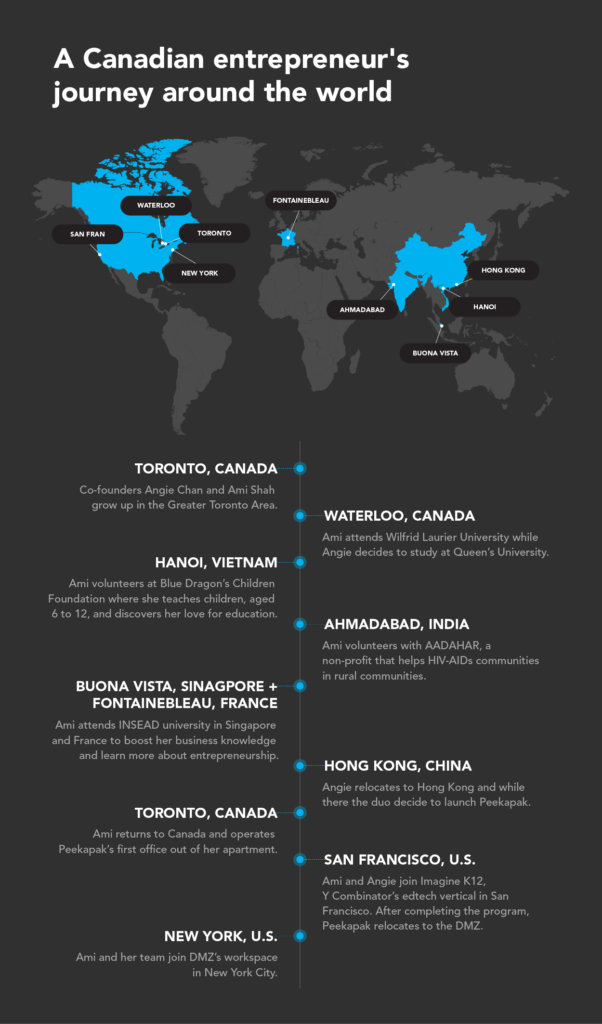Tech conferences are more popular now than ever before. From Toronto’s Elevate to TechCrunch in San Francisco there are a bevy of industry-focused events entrepreneurs and business owners can choose from nowadays.
If you’re interested in diversifying your personal network, learning new skills or trying out the latest gadgets on the market now is the time to do it. Here’s your guide to the top tech conferences in North America
So many tech conferences, so little time:
Elevate Toronto
Dates: Sept. 12 – Sept. 14, 2017
Location: Toronto
Ticket price: $647 CAD
This three-day conference in the heart of Toronto is designed with techpreneurs in mind. Founders from Canada’s top companies will be on site doling out advice, guidance and tips to those lucky enough to score a ticket.
Early-stage startups can rub elbows with talend developers looking for work and pitch the city’s lawmakers and top on their home turf. Investors like Michelle Scarborough (from BDC) and Bruce Croxon (from Round 13 Capital) will dole out advice. Those willing to splurge on conferences can take a private tour of Toronto’s most innovative tech companies.
Bonus: This year festival organizers will provide 40 free passes to minority and low-income conference goers. To apply make sure to check out their website starting August 25, 2017.
TechCrunch Disrupt SF
Dates: Sept. 18 – Sept. 20, 2017
Location: San Francisco
Ticket price: Starting at $1,995 USD
If you’re a Canadian entrepreneur looking to meet new clients, drum up some media publicity south of the border or just learn new industry tricks from some of the best and brightest influencers then TechCrunch Disrupt is for you.
Entrepreneurs can take part money-making startup competitions, attend conference showcases presented by well-known investors or attend one of the many networking and skill-based sessions. Tickets for this showcase aren’t cheap – early-bird tickets start at $1,900 US, (link) which doesn’t include airfare, accommodation or food – but for companies looking to build traction in the U.S. it can be worth the cost.
Money2020
Dates: Oct. 22 – Oct. 25, 2017
Location: Las Vegas
Ticket price: $2,995 USD (discounts available for eligible startups)
If you’ve ever wanted to learn more about the fast-paced world of fintech then Money2020 — billed as “the world’s largest payments and financial services innovation event” – is the place to go. Last year’s event included attendees from over 85 countries and this year features hour-long sessions on everything from data privacy to new-age mobile banking in developing countries and blockchain technology.
A range of skill-testing startup competitions and hackathons are also on offer for developers hoping to showcase their skills or find new employment opportunities. Regular tickets retail for $2,995 but discounts of up to 50 per cent are available for select retailers and startups (link).
TEDxToronto
Dates: Oct. 27, 2017
Location: Toronto
Ticket price: $500 – $1,000 CAD
A good conference is about more than just networking and tech demonstrations. A great event will push participants to be better and inspires attendees to try new things.
While TEDxToronto isn’t exclusively focused on technology its seminars, presented by local influencers, tackle subjects and ideas that impact every facet of life and often touch on technology in some form. These profoundly inspiring talks deal with everything from company leadership and career motivation.
This year’s speakers include Paul Rowan (co-founder of home design store Umbra), Gimmy Chu (co-founder of green technology startup Nano Leaf) and Peter Sloly (partner at Deloitte Canada). Torontonians who can’t afford the $1,000 price tag can also watch highlights online in the weeks following the event.
Mesh Marketing
Dates: Nov. 6, 2017
Location: Toronto
Ticket price: $299 CAD
If you’re a professional who deals with both marketing and technology, then Mesh Marketing might be the most useful for your long-term goals.
This international event deep dives into operational issues and discusses strategy-focused topics to help attendees better understand marketing technologies. Attendees also take part in the invite-only networking events that take place after the conferences and get a front-row seat to other related marketing events the company throws throughout the year.


